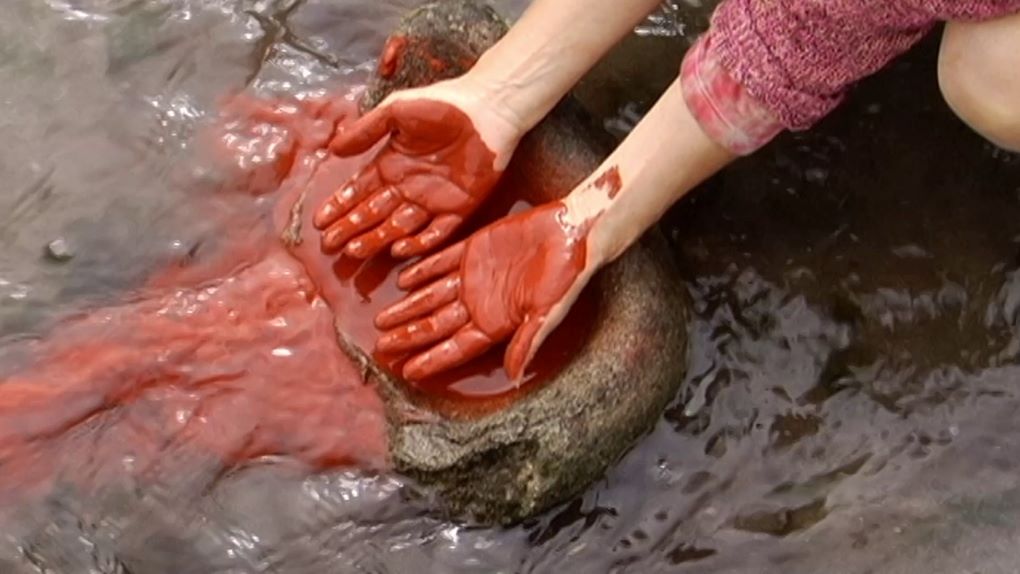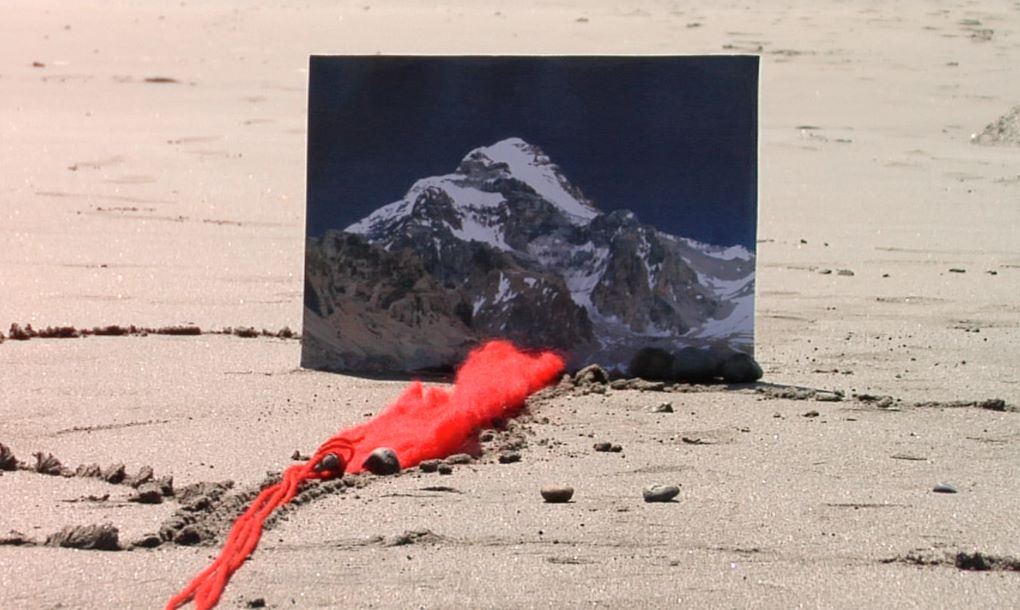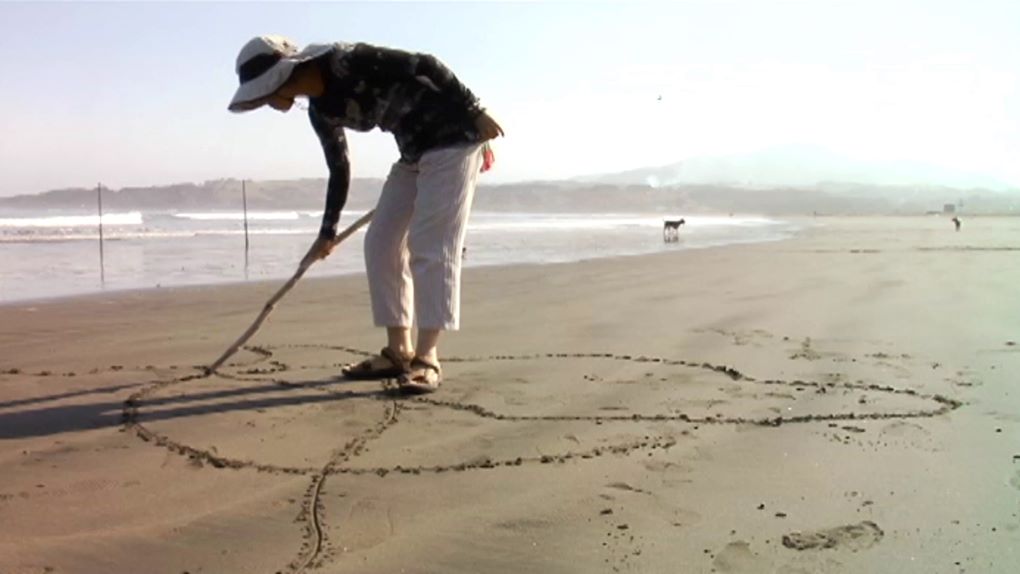Cecilia Vicuña
CECILIA VICUÑA, Kon Kon, 2010, Film, color, sound, HD video, Spanish with English subtitles, Courtesy the artist, Lehmann Maupin, and Electronic Arts Intermix, New York, NY
Artist, poet, and activist, Cecilia Vicuña created her “documentary poem,” Kon Kon, on the beaches, dunes, hills, and rocks of Concón, which Vicuña describes as “one of the most sacred places in Chile, at the foot of the Aconcagua Mountain.” Concón’s nature preserves were chosen as the site of the Aconcagua oil refinery, built in the 1970s. Constructed atop an ancient burial ground, the refinery altered the landscape and ravaged the ecosystem of this culturally and spiritually important place. Kon Kon the film, which the artist notes was “made in collaboration with the ocean,” addresses her deep connection to this place as well as the ecological and cultural disappearances that are tied to overfishing, pollution, corporate development, economic greed, and political corruption.
The artist states: “ . . . I was on the beach in Chile. And suddenly, I felt the wind was alive, and it was sort of caressing me, moving around my body like a snake. I turned around, and I could see I was being sensed as much as I was sensing the world around me . . . So what is it for me? It is the acknowledgment of the precariousness of life, the precariousness of the beauty of being. It is an act of acknowledgment of that fact that we will die. That we are dying as we live. For someone like me, the words nature and environment separate us from who we truly are. We are nature. We are the environment. Especially us as a group, as a human group. We are not individuals. We are simultaneously an individual, different from everyone else,
and at the same time, we are one.”
Kon Kon serves as an ode to Concón amidst its destruction and a reminder that if we are one with each other and one with the land, the destruction of nature is violence committed against all of us. Working with reverence and in communion with the sea, the wind, and earth, the artist’s practice illustrates how land is a living force, alive and holding memory and culture, as well as the source of all life and death.
CECILIA VICUÑA (b. 1948) was born in Santiago, Chile, and received her MFA from the National School of Fine Arts, University of Chile, in 1971 and studied at Slade School of Fine Art, University College London from 1972–1973. Her extensive practice integrates poetry, performance, film, and textile craft in response to pressing concerns of the modern world, including ecological destruction, human rights, and cultural homogenization, as well as a desire to preserve and pay tribute to the indigenous history and culture of Chile. Her work has been shown in exhibitions at major institutions, including solo exhibitions at Tate Modern, London, UK, the Guggenheim Museum, New York City, and the Smithsonian National Portrait Gallery, Washington, DC. Additionally she has exhibited at Museo de Arte Miguel Urrutia (MAMU), Bogotá, Colombia; Centro de Arte Dos de Mayo (CA2M), Madrid, Spain; CCA Wattis Institute for Contemporary Art, San Francisco, CA; and Museo Universitario de Arte Contemporáneo, Mexico City, Mexico. Her work is in numerous international private and public collections, including the Berkeley Art Museum and Pacific Film Archive; Fonds Régional d’Art Contemporain de Lorraine, France; Museo de Arte Contemporáneo, Santiago, Chile; Museo Nacional Centro de Arte Reina Sofía, Madrid, Spain; Museum of Fine Arts, Boston; Museum of Modern Art, New York City; and the National Portrait Gallery, Smithsonian Institution. Vicuña has received several awards, including the Golden Lion for Lifetime Achievement, Venice Biennale and The Andy Warhol Foundation Award. In 2015, she was appointed the messenger lecturer at Cornell University. Vicuña is represented by Lehmann Maupin in New York City.




